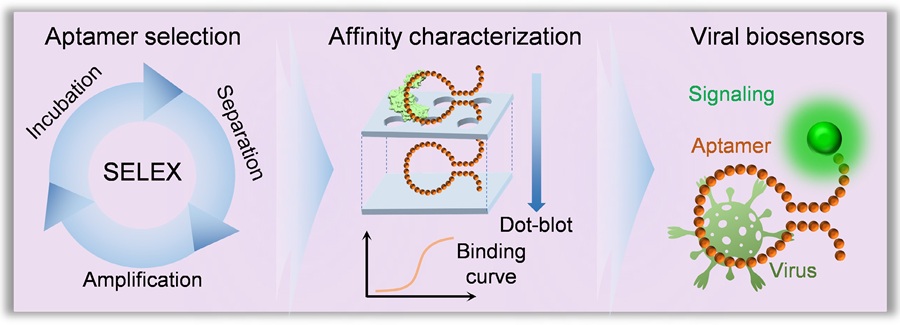Breakthrough Test Detects Biological Markers Related to Wider Variety of Cancers
Posted on 21 Apr 2023
When assessing potential cancer cases, physicians rely on biomarker tests to aid in diagnosis. These tests, utilizing a testing system and patient samples, enable doctors to explore possible indicators and narrow down their search for the most accurate and effective treatment. Now, researchers have devised a novel test to identify biological markers associated with various cancer types.
A team of chemists at Florida State University (Tallahassee, FL, USA) has created a sensing platform made of a gold nanoparticle and dye-labeled peptide molecules. These components are linked by chemical bonds, with the gold nanoparticle preventing the dye from emitting light under UV exposure. When a patient sample containing the enzyme MMP-14 – a biomarker for multiple cancer types, most commonly breast cancer – is introduced, it breaks the peptide bonds, separating the dye-containing fragment from the gold. In the absence of gold to absorb the dye's energy, the sample starts to emit light. The intensity of this light emission depends on the enzyme concentration and interaction duration. By analyzing this light, researchers can determine the presence and levels of a cancer marker in the sample.

Although there are already numerous tests to identify cancer in patients, this research represents an initial step towards developing a method capable of detecting a broader range of cancers. The research team has tested their system with the MMP-14 enzyme but intends to expand their efforts by pairing more peptide chains with other enzyme cancer markers. This advancement could eventually enable scientists to use a single test to simultaneously screen for various cancers. In addition to its diagnostic applications, the study also provides further insights into enzyme interactions with peptide-bound nanoparticles and the impact of enzyme addition on the testing system.
“Better tools for detecting cancer mean more effective treatment for patients,” said study co-author Hedi Mattoussi, a professor in the FSU Department of Chemistry and Biochemistry. “Our goal in this research was to build a biosensor that would light up in the presence of cancer markers, offering another tool for the ongoing problem of detecting this disease.”
Related Links:
Florida State University













